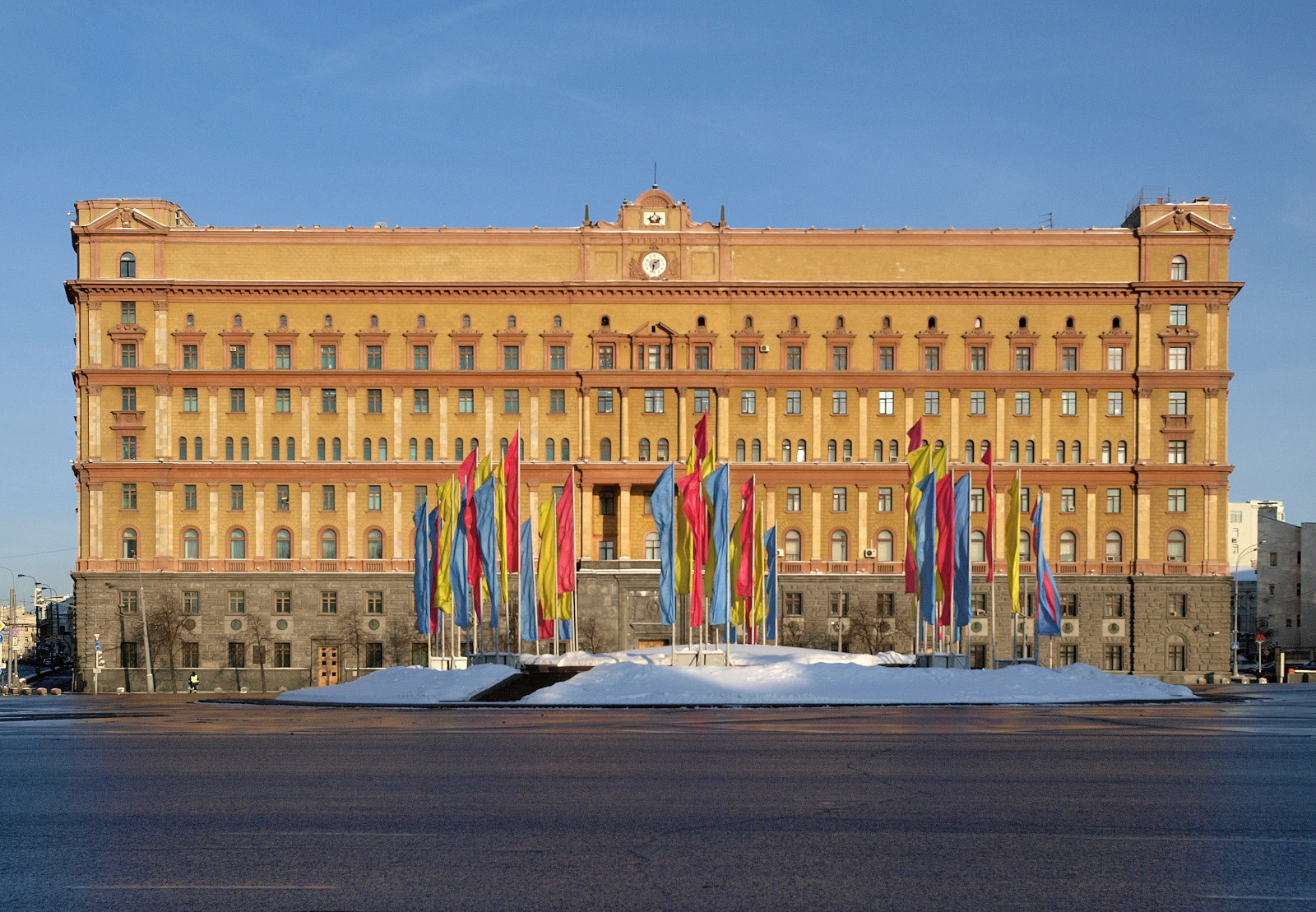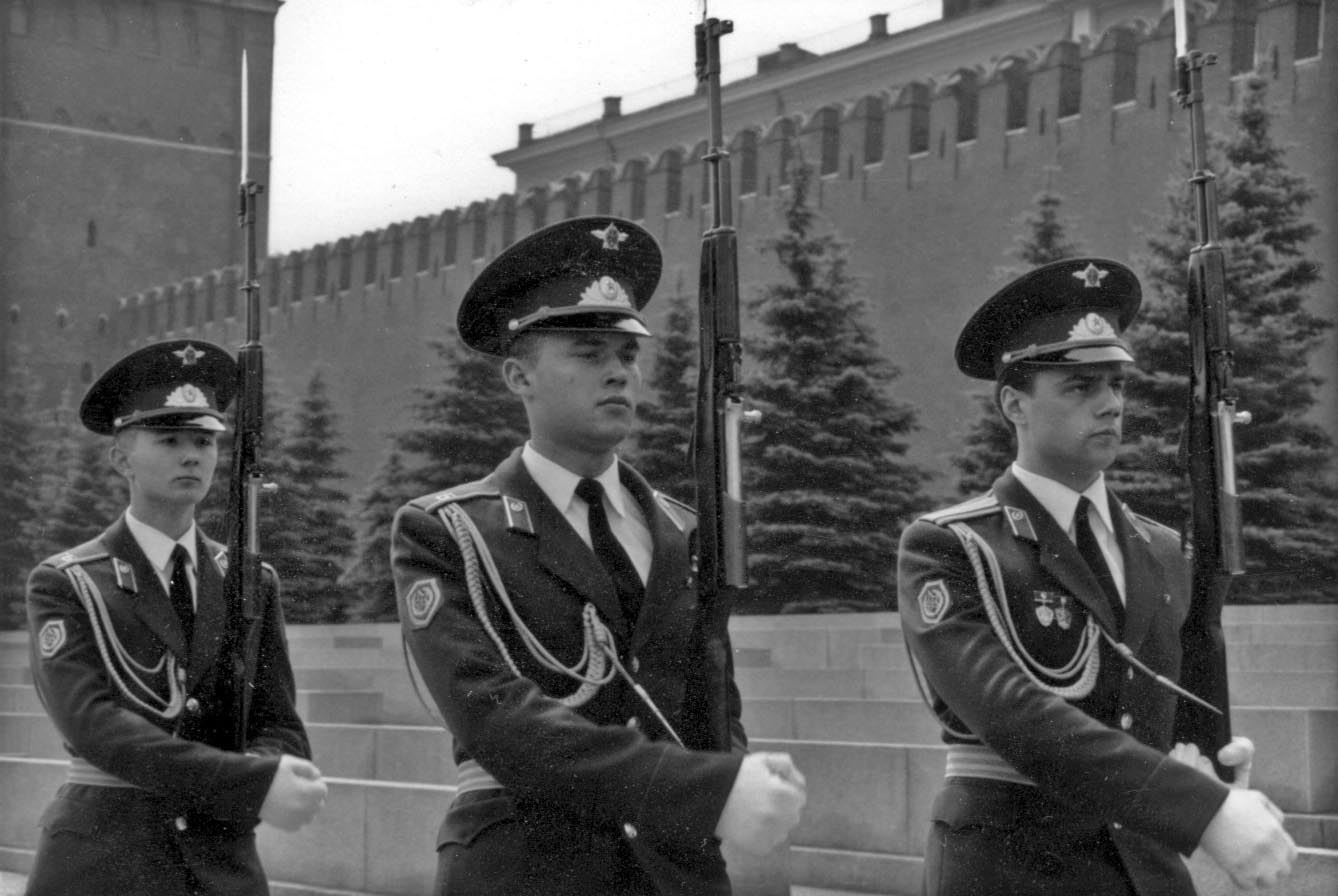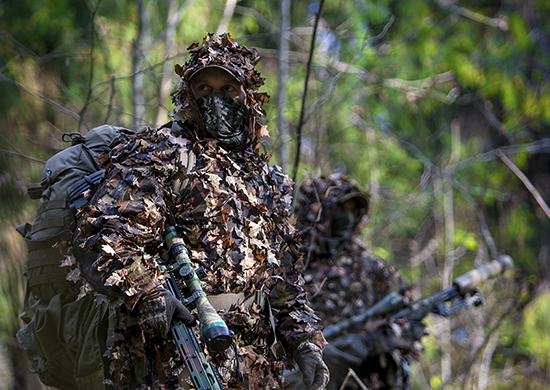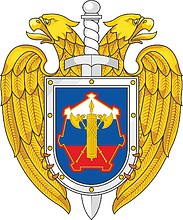|
Mikhail Barsukov
Mikhail Ivanovich Barsukov (Russian: Михаил Иванович Барсуков; born on 8 November 1947) is a former Russian intelligence and government official. His most notable post was as the short-lived head of the Federal Security Service of the Russian Federation (FSB) in mid-1990s. Early life and education Mikhail Barsukov was born in the city of Lipetsk, the capital of Lipetsk Oblast region in western Russia, the son of Ivan Barsukov, a Soviet Army non-commissioned officer serving as a radio communications operator. In 1955, he began his studies at the Lipetsk School No. 5 and finished high school at the Lipetsk School No. 12. Upon completion of high school studies, Barsukov enrolled in the Moscow Higher Military Command School of the Supreme Soviet of the RSFSR in 1966. He studied tactics, strategy and military leadership for four years, prior to earning a commission as a KGB junior lieutenant in 1970. Barsukov also studied at M. V. Frunze Military Academy sometime ... [...More Info...] [...Related Items...] OR: [Wikipedia] [Google] [Baidu] |
Federal Security Service (Russia)
The Federal Security Service of the Russian Federation (FSB) RF; rus, Федеральная служба безопасности Российской Федерации (ФСБ России), Federal'naya sluzhba bezopasnosti Rossiyskoy Federatsii, fʲɪdʲɪˈralʲnəjə ˈsluʐbə bʲɪzɐˈpasnəstʲɪ rɐˈsʲijskəj fʲɪdʲɪˈratsɨɪ) is the principal security agency of Russia and the main successor agency to the Soviet Union's KGB; its immediate predecessor was the Federal Counterintelligence Service (FSK) which was reorganized into the FSB in 1995. The three major structural successor components of the former KGB that remain administratively independent of the FSB are the Foreign Intelligence Service (SVR), the Federal Protective Service (FSO), and the Main Directorate of Special Programs of the President of the Russian Federation (GUSP). The primary responsibilities are within the country and include counter-intelligence, internal and border security, count ... [...More Info...] [...Related Items...] OR: [Wikipedia] [Google] [Baidu] |
Kremlin Regiment
The Kremlin Regiment (russian: Кремлёвский полк, Kremlyovskiy polk), also called the Presidential Regiment (russian: Президентский полк, Prezidentskiy polk), is a unique military regiment and part of the Russian Federal Protective Service with the status of a special unit. The regiment ensures the security of the Kremlin, its treasures, and state officials. In accordance with the federal law of December 8, 1997 "On Immortalizing the Soviet People’s Victory in the Great Patriotic War of 1941–1945", the regiment also maintains a guard of honor (russian: Почётный караул) at the eternal flame of the Tomb of the Unknown Soldier. The regiment is housed in the historic Kremlin Arsenal. History When the leaders of the Soviet Union moved from Petrograd to the Moscow Kremlin in early 1918, their protection was entrusted to the Red Latvian Riflemen, under the command of the Commandant of the Kremlin Garrison. In September 1918, the Latv ... [...More Info...] [...Related Items...] OR: [Wikipedia] [Google] [Baidu] |
Spetsnaz
Spetsnaz are special forces in numerous post-Soviet states. (The term is borrowed from rus, спецназ, p=spʲɪtsˈnas; abbreviation for or 'Special Purpose Military Units'; or .) Historically, the term ''spetsnaz'' referred to the Soviet Union's Spetsnaz GRU, special operations units of the GRU, the main military intelligence service. It also describes task forces of other ministries (such as the Ministry of Internal Affairs' ODON and Ministry of Emergency Situations' special rescue unit) in post-Soviet countries. As ''spetsnaz'' is a Russian term, it is typically associated with the special units of Russia, but other post-Soviet states often refer to their special forces units by the term as well, since these nations also inherited their special purpose units from the now-defunct Soviet security agencies. The 5th Spetsnaz Brigade of Belarus is an example of a non-Russian spetsnaz force. Etymology The Russian abbreviations ''spetsnaz'' and ''osnaz'' are syl ... [...More Info...] [...Related Items...] OR: [Wikipedia] [Google] [Baidu] |
Vympel
Directorate "V" of the FSB Special Purpose Center, often referred to as Spetsgruppa "V" Vympel ( pennant in Russian, originated from German , and having the same meaning), but also known as KGB Directorate "V", Vega Group, is an elite Russian special forces unit, under the command of the FSB. Vympel is the sister unit of Spetsgruppa "A" (Alpha Group), an FSB unit. Origins KUOS As most of the training in the KGB academy concentrated on plainclothes operational work focused on espionage and counter-espionage, in 1955 the First Chief Directorate of the service established the Development Courses for Officer Personnel ( (), Latinized abbreviation KUOS) – a training cadre with the purpose of training general duty KGB officers in irregular warfare and combat tactics for clandestine operations overseas or as a stay-behind cadre and backbone for the formation of partisan units in case of a foreign invasion. In 1966 these courses were taken out of the structure of the ... [...More Info...] [...Related Items...] OR: [Wikipedia] [Google] [Baidu] |
Alpha Group
Spetsgruppa "A", also known as Alpha Group (a popular English name), or Alfa, whose official name is Directorate "A" of the FSB Special Purpose Center (TsSN FSB) (Russian: Спецназ ФСБ "Альфа"), is an elite stand-alone sub-unit of Russia's special forces within the Russian Federal Security Service (FSB). It was created by the Soviet KGB in 1974. Although little is known about the exact nature of its primary directives, it is speculated that the unit is authorised to act under the direct control and sanction of Russia's top political leadership, similar to its sister unit, the Directorate "V" (Vympel), which is officially tasked with protecting Russia's strategic installations, as well as conducting black operations inside and outside Russia. It is also available for extended police duties, for paramilitary operations, and for covert operations, both domestically and internationally. In the Soviet Union Creation and organization On 28 July 1974, Alpha Group was ... [...More Info...] [...Related Items...] OR: [Wikipedia] [Google] [Baidu] |
Armed Forces Of The Russian Federation
The Armed Forces of the Russian Federation (, ), commonly referred to as the Russian Armed Forces, are the military forces of Russia. In terms of active-duty personnel, they are the world's fifth-largest military force, with at least two million reserve personnel. Their branches consist of the Ground Forces, the Navy, and the Aerospace Forces, as well as three independent arms of service: the Strategic Rocket Forces, the Airborne Forces, and the Special Operations Forces. In 2021, Russia had the world's fifth-highest military expenditure at . The Russian Armed Forces possess the world's largest stockpile of nuclear weapons. They operate the second-largest fleet of ballistic missile submarines, and are one of only three national militaries (alongside those of the United States and China) that operate strategic bombers. With certain exceptions, Russian law mandates one year of military service for all male citizens aged 18–27, though conscripts are generally not ... [...More Info...] [...Related Items...] OR: [Wikipedia] [Google] [Baidu] |
1993 Russian Constitutional Crisis
The 1993 Russian constitutional crisis, also known as the 1993 October Coup, Black October, the Shooting of the White House or Ukaz 1400, was a War of Laws#Issues in a new Russia, political stand-off and a constitutional crisis between the President of Russia, Russian president Boris Yeltsin and the Supreme Soviet of the Russian Federation that was resolved by Yeltsin using military force. The relations between the president and the parliament had been deteriorating for some time. The power struggle reached its constitutional crisis, crisis on 21 September 1993, when President Yeltsin intended to dissolve the country's highest body (Congress of People's Deputies of Russia, Congress of People's Deputies) and parliament (Supreme Soviet of Russia, Supreme Soviet), although the constitution did not give the president the power to do so. Yeltsin justified his orders by the results of the 1993 Russian government referendum, referendum of April 1993, although many in Russia both then ... [...More Info...] [...Related Items...] OR: [Wikipedia] [Google] [Baidu] |
United States Secret Service
The United States Secret Service (USSS or Secret Service) is a Federal law enforcement in the United States, federal law enforcement agency under the United States Department of Homeland Security, Department of Homeland Security charged with conducting criminal investigations and protecting U.S. political leaders, their families, and visiting heads of state or government. United States Department of the Treasury#2003 reorganization, Until 2003, the Secret Service was part of the United States Department of the Treasury, Department of the Treasury, as the agency was founded in 1865 to combat the then-widespread Counterfeit United States currency, counterfeiting of U.S. currency. Primary missions The Secret Service is mandated by United States Congress, Congress with two distinct and critical national security missions: protecting the nation's leaders and safeguarding the financial and critical infrastructure of the United States. Protective mission The Secret Service is tasked w ... [...More Info...] [...Related Items...] OR: [Wikipedia] [Google] [Baidu] |
Federal Protective Service (Russia)
The Federal Protective Service, or the Federal Guard Service (russian: Федеральная служба охраны, ФСО, Federalnaya sluzhba okhrany, FSO) of the Russian Federation, official name in English Federal Guard Service of the Russian Federation, is a federal government agency concerned with the tasks related to the protection of several high-ranking state officials, mandated by the relevant law, including the President of Russia, as well as certain federal properties. It traces its origin to the USSR's Ninth Chief Directorate of the KGB and later Presidential Security Service (SBP) led by KGB general Alexander Korzhakov. On May 27, 1996, the law "On State Protection" reorganized the GUO (Glavnoye Upravlenie Okhrani) into the FSO (Federal Protection Service). Under article 7 of the law, "the President of the Russian Federation, while in office, shall not be allowed to forgo state protection." FSO includes the Russian Presidential Security Service. This presiden ... [...More Info...] [...Related Items...] OR: [Wikipedia] [Google] [Baidu] |
Commandant's Office Of The Moscow Kremlin
The Commandant's Office of the Moscow Kremlin () is an administration unit of the Federal Protective Service of Russia. Its duties include inspecting visitors to the Kremlin and providing security to the Kremlin interior and buildings exterior from the Kremlin Wall such as Lenin's Mausoleum. It is also responsible for keeping the order among servicemen of Moscow Garrison organizing parades in the national capital. Internally, has authority over the operation of certain Kremlin museums. The Commandant of the Moscow Kremlin is the operational head of the office. It has direct control over the Kremlin Regiment, which notable maintains a permanent honor guard (russian: Почётный караул) at the eternal flame of the Tomb of the Unknown Soldier. History In 1918, the new leadership of the RSFSR moved to the Moscow Kremlin, the protection of which was immediately carried out by the commandant's office of the Moscow Kremlin. Until January 1936, the office was not included in the ... [...More Info...] [...Related Items...] OR: [Wikipedia] [Google] [Baidu] |
Alexander Korzhakov
Alexander Vasilyevich Korzhakov (russian: Александр Васильевич Коржаков; born 31 January 1950) is a Russian former KGB general who served as Boris Yeltsin's bodyguard, confidant, and adviser for eleven years. He was the head of the Presidential Security Service (PSB) from 1991 to 1996, State Duma deputy from 2007 to 2011, and retired Lieutenant-general. Korzhakov had been Yeltsin's bodyguard since 1985, and on 19 August 1991, he stood next to his boss on top of a tank during Yeltsin's historic speech. Being the Chief of the Security Service, Korzhakov was widely criticized for interfering in government affairs and business. In 1996, he was finally sacked after losing a power struggle with the Prime Minister. He then successfully ran for a seat in the State Duma where he received immunity from prosecution. In 1997, Korzhakov published a biography based on his experience at the very top of Russian politics. In the biography he contends that he and th ... [...More Info...] [...Related Items...] OR: [Wikipedia] [Google] [Baidu] |
Boris Yeltsin
Boris Nikolayevich Yeltsin ( rus, Борис Николаевич Ельцин, p=bɐˈrʲis nʲɪkɐˈla(j)ɪvʲɪtɕ ˈjelʲtsɨn, a=Ru-Boris Nikolayevich Yeltsin.ogg; 1 February 1931 – 23 April 2007) was a Soviet and Russian politician who served as the first president of the Russian Federation from 1991 to 1999. He was a member of the Communist Party of the Soviet Union from 1961 to 1990. He later stood as a political independent, during which time he was viewed as being ideologically aligned with liberalism and Russian nationalism. Yeltsin was born in Butka, Ural Oblast. He grew up in Kazan and Berezniki. After studying at the Ural State Technical University, he worked in construction. After joining the Communist Party, he rose through its ranks, and in 1976 he became First Secretary of the party's Sverdlovsk Oblast committee. Yeltsin was initially a supporter of the '' perestroika'' reforms of Soviet leader Mikhail Gorbachev. He later criticized the reforms a ... [...More Info...] [...Related Items...] OR: [Wikipedia] [Google] [Baidu] |




